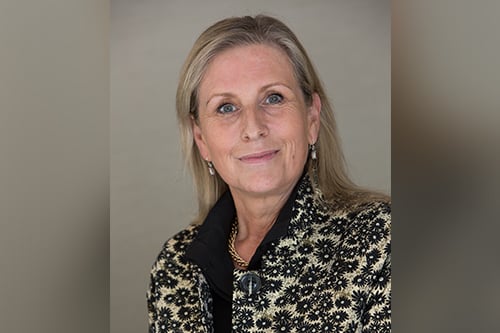

For most people, the office is solely a place of work, they clock in tired in the morning with a coffee in hand, and gratefully clock out at 5:30pm, eager to get back to their homes. But for some, more than you’d like to believe, the office represents so much more. The fluorescent strip lights and industrial carpets represent a safe haven; an uncomfortable, yet reliable temporary refuge from a violent, dangerous home life.
There has been a pattern of rising domestic abuse in the UK and other countries over the past year, the additional tensions brought about by the pandemic, increased time spent trapped indoors and the restriction of opportunities to escape, even for a few hours have led to some, frankly, frightening statistics. According to the Employers’ Initiative on Domestic Abuse (EIDA) organisation, two women every week are killed by a current or former partner. One in four women and one in six men have suffered from some form of domestic abuse, about 1.9 million adults in the last year alone, and that number is rising.
Last month, the MGAA launched a new partnership with EIDA, which is sponsored by the Insurance Charities. Together we aspire to create a culture of acceptance and safety within businesses, providing a secure space, physically, mentally and emotionally, for our colleagues across the insurance profession and beyond. While many of us are currently still working from home, over the coming months we’ll see people slowly start to return to the workplace, and I think it will quickly become clear that for some of our colleagues and friends, working from home has taken a graver toll than on others.
There is no “typical” survivor of domestic abuse, it can happen to anyone from any walk of life, which makes it incredibly difficult to recognise when someone is suffering. But if we look closely the signs will be there; maybe one of your team flinches when voices are raised in the office, maybe they turn pale when the phone rings. There might be bruises - but while they can be easily covered, the mental damage runs much deeper.
Aside from the basic human responsibility to look out for one another, domestic abuse has a very real financial cost for businesses, an estimated £1.9 billion per year in fact, in the form of sick pay, decreased productivity, time off work and lost wages. It is simply not an issue we can afford to overlook.
But when faced with such insidious harm, what can we do? How can we make sure we are taking every available opportunity to provide support?
The insurance profession has taken great strides over the years to develop an open and inclusive culture, this culture is fundamental in ensuring people feel supported and encouraged to open-up about their experiences and seek help.
We all have a responsibility to address domestic abuse and to create a culture that encourages open discussion, providing a safe space for our people should they choose to seek support. The moment a person first discloses the abuse they are suffering is pivotal, and we have one moment to acknowledge and reassure them that they are doing the right thing. For many this may be the first time they have spoken about their experiences and by far the bravest thing they have ever had to do; having a safe space and compassionate colleagues who can deal with the situation sensitively and privately is vital. By embedding this culture, developing clear policies surrounding disclosure, signposting the support available for survivors, and making it clear that the person will face no negative career consequences as a result of their words, the business sends a clear message that domestic abuse will not be tolerated and will be handled compassionately.
There is a wealth of support available for organisations – including MGAs of course – to help them to develop and embed the type of inclusive culture that fosters a safe place where survivors feel they can open up. One such resource is the ‘Domestic Abuse Toolkit for Employers’, developed by EIDA. This can be accessed by anyone and includes details on the scale of the problem in the UK, as well as best practice guidance from companies that have developed successful approaches to supporting team members impacted by domestic abuse. It shares vital information on the subtle signs of domestic abuse we should all be alert to, and most importantly features links to other external resources, such as Business in the Community and Public Health England toolkits, sample workplace agreements that companies can use and embed into their own organisations, and details of a free two-day training session provided by Women’s Aid that helps individuals to understand the best approach to provide compassionate and sensitive support for survivors. The toolkit is an invaluable resource for businesses.
As businesses we must be alive to the signs of domestic abuse and ensure we have a culture in place that offers our people sanctuary as well as the resources, emotional and practical support they need if they are ready to accept it. It is OUR problem, and we must address it together.
